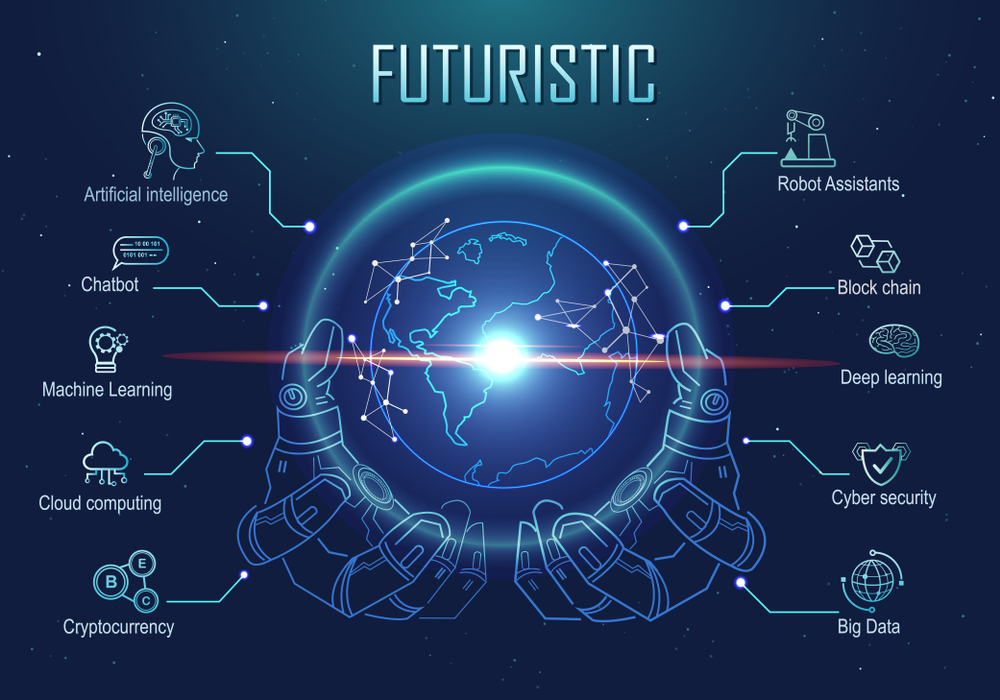The most difficult climate issues on the planet may soon be solved with deep technology. But some of the most brilliant concepts are lying dormant. By bringing together innovators, funds, and the appropriate partners, Deep-Tech seeks to revive these solutions.
The window of opportunity to combat the rise in global temperatures, according to a recent United Nations climate change report, is rapidly closing. As inevitable climate risks worsen, the rate of global warming is outpacing efforts to protect billions of people. “Climate change impacts and risks are getting more complicated and challenging to manage.”
Complex solutions are required for complex problems. Deep technology, which includes quantum computing, robotics and drones, photonics and electronics, biotechnology, advanced materials, and artificial intelligence, holds the potential to address a number of global issues, including food insecurity, poverty, and cancer.

The majority (97%) of deep-tech ventures worldwide contribute to at least one of the United Nations Sustainable Development Goals, which serve as a blueprint to achieve a better future for all while only comprising a tiny fraction of start-ups.
Long before Covid-19 emerged, biotech invested heavily in mRNA vaccine research, and the results have paid off greatly in terms of both time and money. The mRNA-based vaccines (mRNA-1273 from Moderna and Comirnaty from Pfizer/Biontech) were created and put on the market quickly. This was largely because long-term investments allowed for relatively inexpensive modifications and adaptations of current technology.
Similar to this, venture capital funding can be used to scale up existing deep technology created specifically to lower greenhouse gas (GHG) emissions. Although these technological solutions are challenging to implement, we are increasingly depending on deep technology to improve the efficiency of daily operations.
For instance, the development of technology can assist in slowing the exponential growth of the carbon footprint caused by logistics, which, according to consumer data company Statista, generates an estimated 3.5 billion tonnes of carbon emissions annually. This is equivalent to 8% to 10% of all GHG emissions worldwide.
Deep technology in the food and agriculture sectors has the potential to lower greenhouse gas emissions by improving farming and reducing food waste. Other tech companies examine the soil’s DNA in order to assist farmers in improving bio-fertility, warding off pests and diseases, and applying fertiliser more precisely.
With the help of new analytics and improvements in computing power, satellite and Earth observation is being improved. Global agriculture is becoming more efficient and sustainable thanks to the incorporation of geospatial data into a variety of cutting-edge solutions.
Despite the fact that markets are flooded with investment totaling trillions of dollars, it is challenging to match the funds with emerging and risky solutions. Venture capitalists and other commercial investors frequently pursue ideas that have already demonstrated their viability and in which they can invest to expand the target consumer base.
How deep technology venture capital can help combat climate change
As we pick up and deal with each item of clothing, the pile of dirty laundry that needs to be cleaned only gets smaller. We’ve built an entire civilization on burning or cracking hydrocarbons for energy and chemicals, so there isn’t a single solution – or even a small number of solutions – that can stop the production of greenhouse gases (GHG) that cause global warming or undo the environmental harm already done to the planet. Lots of dirty laundry is present.

Instead, the majority of society will need to contribute in order to combat climate change, which will require a wide range of innovations. This won’t be simple. In order to address the big questions in the life, material, and environmental sciences, we will conduct discovery research; lawmakers and regulators will create laws and agreements that increase the demand for cleaner technologies; entrepreneurs and venture capitalists will scale up and commercialise solutions for more sustainable energy, manufacturing, transportation, and agriculture.
Innovations were funded by venture capital
We think venture capital (VC) plays a critical role in identifying, supporting, and expanding businesses that develop ground-breaking solutions to otherwise insurmountable issues. From the semiconductor to the smartphone, from gene sequencing to vaccines, VC-funded companies have been a key source of transformative innovations for the past 50 years. It’s time to involve the global innovation economy in our era’s challenge to civilization.
The immediate challenge for VCs is to speed up the deployment of current technologies that can buy humanity more time to meet the goals of the 2016 Paris Accords, where the nations of the world committed to keep warming below 2°C. However, because it will take decades to replace the fossil fuel-dependent industries we currently have with the better, cleaner businesses of the future, the immediate imperative for VCs is to do just that.
Utilising “deep tech” to address the climate crisis
Although deep tech is challenging, it can also be the cavalry in the fight against climate change. Recent research indicates that humanity is far from reaching the goals of the Paris Accord. No G20 nation is meeting its deadlines for commitments. The warming could reach 2.4C if the Paris Agreement’s promises were all kept, which would be so extreme that we couldn’t foresee all of the effects. A world that was 3C warmer would be unrecognizably different, and a large portion of the planet’s central belt would be uninhabitable for days, weeks, or months every year if current policies were followed.
A lot of big companies use the same “deep tech” strategy: they combine ground-breaking science with innovative machine learning, data science, and cloud computing techniques, all while investing large sums of money from venture capitalists.
What awaits us in the future?
To build a more sustainable future, we need another 25 years.
We haven’t developed half of the technologies we’ll need to achieve net-zero emissions. Only a small number of tools can significantly reduce emissions now or in the near future and give us breathing room to develop those solutions, despite the fact that there are compelling technologies currently being developed to combat climate change. To develop and expand emerging sustainable energy, manufacturing, and agricultural practises, we merely need more runway.
More social, economic, and environmental changes than in the previous century are likely to occur this decade. The mainstreaming of stakeholder capitalism, the effects of climate change, the advancement of next-generation technologies, and the empowerment of citizens will pave the way for a “resetting” of the global economy and social practises, whereas the COVID-19 pandemic called for immediate reforms.
To Sum Up
As one of the most promising routes to reducing climate change is deep tech. And this results in a positive synergy: deep tech startups from the climate tech landscape that are enabling a zero carbon economy. Prepare yourself for an increasing number of emerging technologies that have been created and scaled with the intention of addressing a social or environmental challenge.







